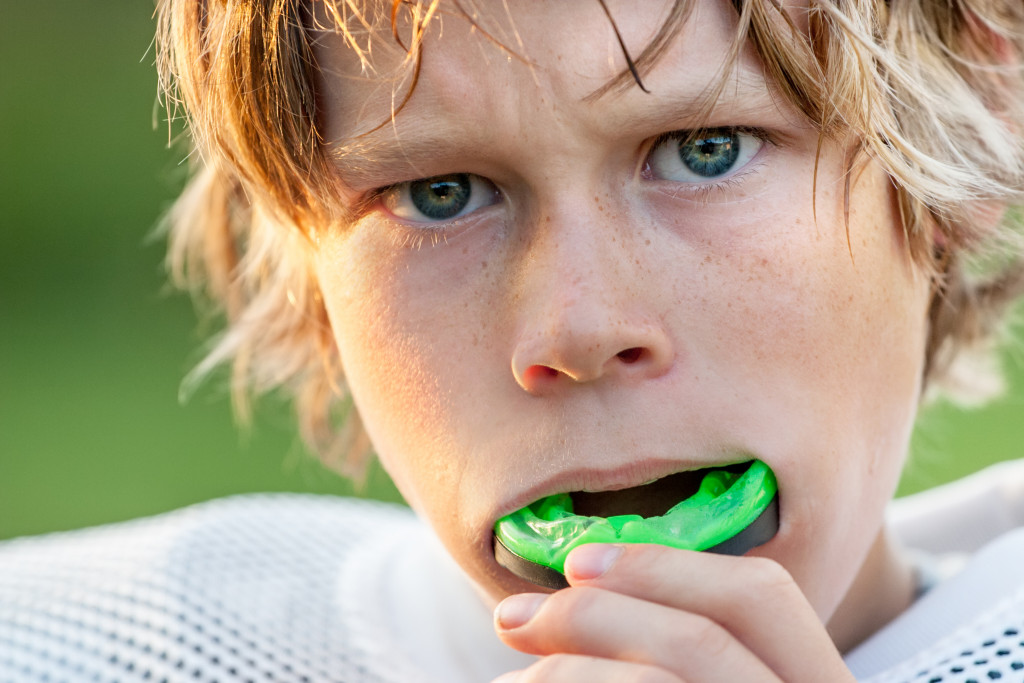- Tooth loss in sports is a common injury, with basketball and baseball having the highest incidences of tooth avulsion due to poor facial protection in these sports.
- Mouthguards and helmets can help absorb shock from impacts and protect teeth from getting knocked out or broken.
- Maintaining good dental hygiene is essential for preventing tooth decay and gum disease, which can weaken teeth over time.
- Avoid risky behaviors such as chewing on ice or hard candy, which can damage teeth, or using their teeth as tools.
Sports are a great way to stay active and healthy, but they can also be dangerous. One of the most common injuries in sports is tooth loss. Over 3 million teeth are avulsed or knocked out yearly, many of which occur during sports activities. Tooth loss can be painful, embarrassing, and expensive to fix. However, you can take steps to prevent tooth loss and manage it if it does happen.
Causes of Tooth Loss in Sports
Tooth loss can occur in any sport where there is a risk of impact to the face or mouth. Some sports have a higher incidence of tooth loss than others. According to Children’s Hospital Colorado, basketball and baseball have the highest incidences of tooth avulsion due to poor facial protection in these sports. Other high-risk sports include football, hockey, soccer, wrestling, and martial arts.
There are several ways that tooth loss can occur during sports activities. A direct blow to the face or mouth is one common cause. This can happen when an athlete collides with another player or object, such as a ball or stick. Another cause is indirect trauma, where the force is transmitted through the jawbone rather than directly on the teeth.
Prevention Strategies for Tooth Loss
Prevention is vital when it comes to avoiding tooth loss in sports. Here are some strategies that athletes can use:
Wear Protective Gear

One of the most effective ways to prevent tooth loss is wearing protective gear such as mouthguards and helmets. Mouthguards help absorb shock from impacts and protect teeth from getting knocked out or broken. Helmets provide additional protection for the head and face.
Practice Good Dental Hygiene
Maintaining good dental hygiene is essential for preventing tooth decay and gum disease, which can weaken teeth over time, making them more susceptible to injury during sports activities.
Avoid Risky Behaviors
Athletes should avoid risky behaviors such as chewing on ice or hard candy, which can damage teeth, or using their teeth as tools, such as opening bottles or tearing packages.
Managing Tooth Loss When It Happens
Despite taking precautions, accidents still happen, and athletes may experience tooth loss during sports activities. Here are some steps that athletes should take if they lose a tooth:
Retrieve The Lost Tooth
If possible, retrieve the lost tooth immediately after it has been knocked out by picking it up by its crown (the part that shows above the gum line) without touching its root (the region below the gum line).
- Rinse the tooth with saline solution or milk
- Reinsert the tooth into its socket if possible
- Store the tooth in milk or saline solution if reinsertion is not possible
Treatment Options For Missing Teeth
There are several treatment options available for missing teeth, including:
Dental Implants

If the injury is too severe that your lost tooth can no longer be saved, dental implants are an effective way to replace your missing tooth. Dental implants are a more permanent solution and can be used to restore the function of a lost tooth. In most cases, porcelain dental implants are recommended over metal implants as they look and feel more natural, allowing you to have a beautiful smile.
Crowns and Bridges
Crowns and bridges are other options for replacing a missing tooth. Crowns are placed over an existing damaged or decayed tooth, while bridges connect two natural teeth on either side of the gap left by the missing tooth. Both crowns and bridges can help restore function to your mouth and improve your smile.
Dentures
If you have multiple missing teeth, a denture is an option to replace them. A denture is a removable prosthetic device used to replace some or all missing teeth. Dentures are usually made of acrylic resin or porcelain and can be customized to match your natural teeth.
Conclusion
Tooth loss due to sports injuries can be painful both physically and emotionally. Still, you can take steps before and after an injury to help minimize the damage while maximizing recovery time, so you don’t miss too much playing time!
By following prevention strategies like wearing protective gear, practicing good dental hygiene, avoiding risky behaviors, managing lost teeth properly, and seeking appropriate treatment options like implants, bridges, dentures, etc., athletes can maintain their oral health while staying active on the field!

